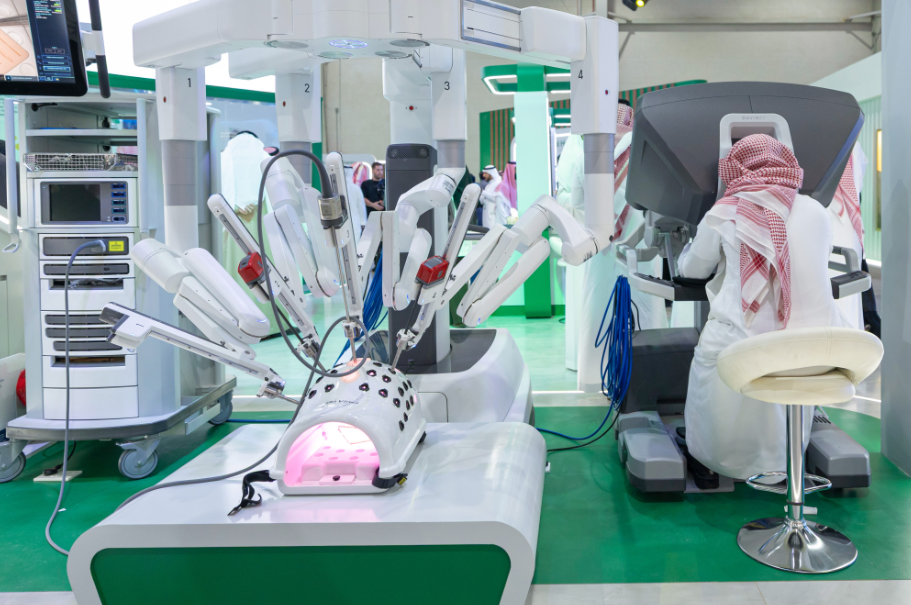Saudi Arabia: Advances in neuro-oncology
- Caroline Haïat

- Dec 19, 2024
- 2 min read

Dr. Faisal Abdulhamid Farrash’s passion for making a tangible difference in patients' lives has inspired his medical journey. Today, as a consultant in neuro-oncology at King Faisal Specialist Hospital & Research Centre (KFSHRC) in Riyadh, he is transforming the field with innovative approaches and a deep commitment to patient care. Dr. Farrash has significantly advanced neuro-oncology services in Saudi Arabia. During the COVID-19 pandemic, he co-authored a groundbreaking study published in World Neurosurgery, which provided actionable insights on maintaining neurosurgical care during crises.
"Through strategic measures, high-quality care can be provided even in the most challenging times," says Dr. Farrash. Meanwhile, the neuroscience department embraced telemedicine to ensure uninterrupted consultations, reducing risks while maintaining excellence in care. His contributions also extended to transitioning educational activities to virtual platforms, ensuring continued professional development despite disruptions.
At the forefront of advances in neuro-oncology education, Dr. Farrash's work on Neurosurgery Case Review: Questions and Answers has become an essential resource for practitioners at all levels, bridging the gap between theory and practice. "His dedication to advancing education and promoting growth is evident in every initiative," notes a fellow neurosurgeon at KFSHRC.
At the heart of his practice is a philosophy of active listening and patient-centered care. "Patients seek more than just answers: they need to feel truly heard," explains Dr. Farrash. This approach fosters trust and ensures that each patient’s voice is integral to their care journey.
His research on gene silencing techniques and the tumor microenvironment has had a significant impact on neuro-oncological treatments, refining his clinical approach. "The time I spent in the lab was transformative," he shares. Dr. Farrash also advocates for the integration of artificial intelligence in healthcare, highlighting its potential to enhance diagnostics and personalize treatment strategies. He notes, "Telemedicine and AI allow us to extend care to a greater number of patients efficiently, reduce waiting times, and improve outcomes."
Beyond his professional achievements, Dr. Farrash is committed to mentoring the next generation of neurosurgeons. "Teaching allows me to stay at the forefront of advancements while enabling my residents to lead the future of medicine," he says. His mentorship focuses not only on technical excellence but also on fostering resilience and ethical decision-making.
As technology and innovation transform medicine, Dr. Farrash remains dedicated to ethical practices and the human connection that defines patient care. He emphasizes that advancements must always enhance the dignity and well-being of the patient. "Every success reaffirms the purpose of our work," he concludes, embodying the excellence and empathy that define the mission of KFSHRC.
Caroline Haïat




Comments